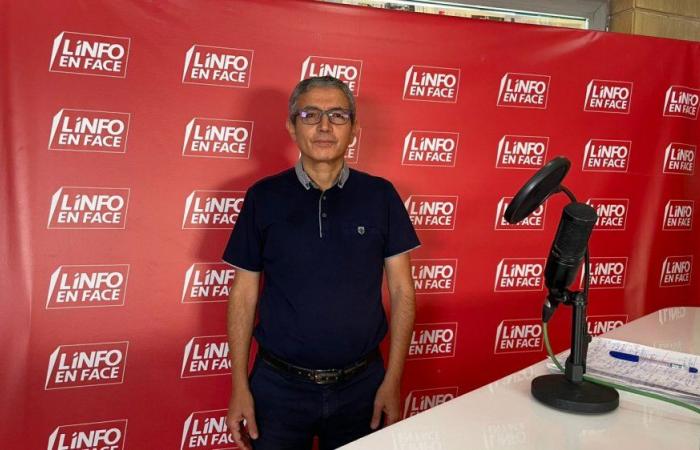According to him, the current situation reveals an alarming fragility in terms of food safetya security which could be seriously threatened in the near future if energetic measures were not implemented. “We must anticipate future crises, because water insecurity can quickly turn into food insecurity,” warns Mr. Jalil. Morocco, with its various initiatives such as the Green Morocco Plan and the National water planhas already taken significant steps to address these challenges. But a holistic approach that integrates the study of the interrelations between different public policies is essential, insists the expert. Mr. Jalil also highlights the urgent need to adopt a long-term vision in managing these crises. “The challenges of water stress and food insecurity require a 30- to 40-year time perspective, well beyond five-year election cycles,” he says. This vision must transcend narrow political considerations in order to build infrastructure and sustainable policies.
Climate variability: should we be worried?
The expert does not fail to note the obvious impact of the climate variability on agriculture which fuels concerns regarding food safety. Indeed, for almost seven years, the climatic fluctuations in Morocco have devastating consequences on the agricultural sector. The few rainy cycles observed are increasingly unpredictable, calling into question the reliability of harvest forecasts. “The fact is that we are in distress, and we have been experiencing the effects of intense climate variability for almost seven years. This year also promises to be difficult, as shown by the climatological trends recorded so far. Despite some rainy episodes, we observed a delay in the precipitation which, rather than being regular, appeared in the form of sporadic storms. These phenomena only underline the climate change which we are all witnesses to,” explains Mr. Jalil.
The expert notes a striking anomaly in this regard: “Currently, we are experiencing a heat wave unusual for the winter seasone. This raises questions about the normality of these climate fluctuations. The temperatures that we observe in November in Casablanca, for example, are well beyond the usual values for this period. What is perceived as normal or abnormal must be measured against climate data established over 30 years,” he specifies.
But while conceding that it is normal to observe climatic variations over a more or less long period, Mr. Jalil notes that the transition from cold weather to intensely hot weather in a short period is among the indicators of accentuation of climate change. “THE climate change is not only linked to reductions in precipitation or increases in temperature in the long term. It is also the expression of an upheaval in the air thermodynamicsplunging regions into extreme climatic conditions,” he says.
By way of illustration, the expert mentions climatic phenomena Recent: “Sometimes we experience warm air without sunlight, which seems counterintuitive. This is evidence of a fundamental change in atmospheric circulation and the movement of air masses which becomes unpredictable. We can observe a cohabitation of dry air masses in a period when we should have humidity, and vice versa,” explains the guest of “L’Info en Face”. Mr. Jalil goes on to warn that these variations, although natural at a certain level, are amplified by climate change. “Climate variability is exacerbated by the effects of human activities. It is imperative to recognize this new reality and act accordingly to alleviate the stress that this growing crisis can generate,” he recommends.
Water crisis: from reactive to proactive management
Morocco faces significant challenges in terms of water managementand this observation is undeniable. According to Mohamed Jalil, scientific studies predict a significant decrease in precipitation at the national level, a trend which seems to be lasting. Some regions could even record declines in rainfall reaching up to 30%. This phenomenon would be accompanied by a rise in temperatures, leading to an increase in the evaporation of water reserves and a process of soil degradation which would further complicate the situation. “We are at a difficult turning point!” he declares. “Our water management policies have become obsolete in the face of changing lifestyles, demography and climatic conditions. Moroccan decision-makers no longer have a choice, they must act quickly,” warns the expert.
However, the need to renew these policies comes up against complex environmental issues, with each decision having an impact on the ecosystem. Whether it is building a barrage or install units of desalinationeach step must be carefully calculated. “Environmental impacts must be considered seriously,” underlines Mr. Jalil, insisting that these choices must not be dictated only by economic considerations, but also ecological ones. This is all the more important as Morocco plans to diversify its water supply sources by focusing on both barrages – a necessity despite the low rainfall – and on desalination technologies. With its 3,500 km of coastline, the country has the possibility of exploiting thesea wateralthough this can lead to ecological consequences, in particular through the discharge of brines into theocean.
“By 2027, we plan to install several of the desalination plants, but we also need to anticipate the harmful effects that these brines could have on marine ecosystems,” explains the expert. He cites as an example the Casablanca desalination plant, where some 300 million cubic meters of fresh water will be produced annually, leading to the release of equivalent quantities of brine, which could affect the health of aquatic environments. To resolve this equation, Mr. Jalil calls for a paradigm shift from simple crisis management to risk management: “We must be proactive and rigorous in our approach. Morocco must develop innovative solutions while protecting its natural resources,” he concludes.






